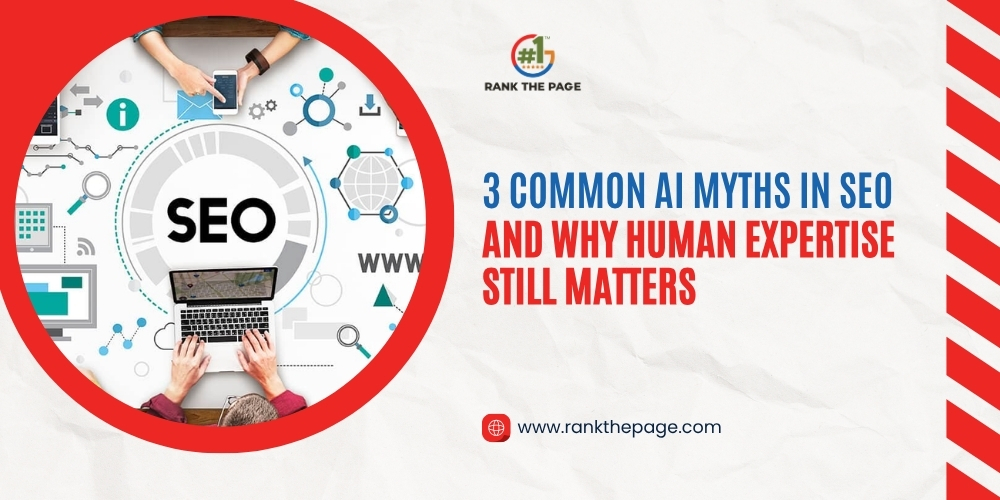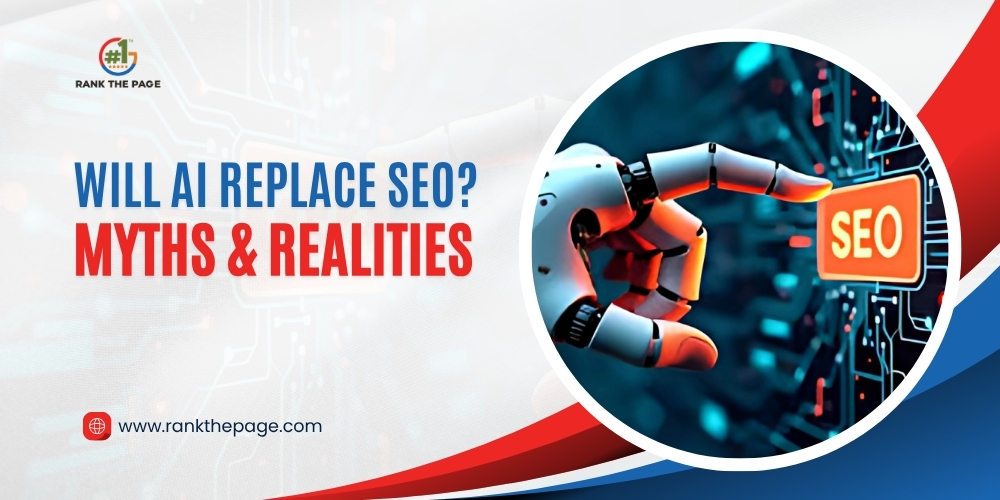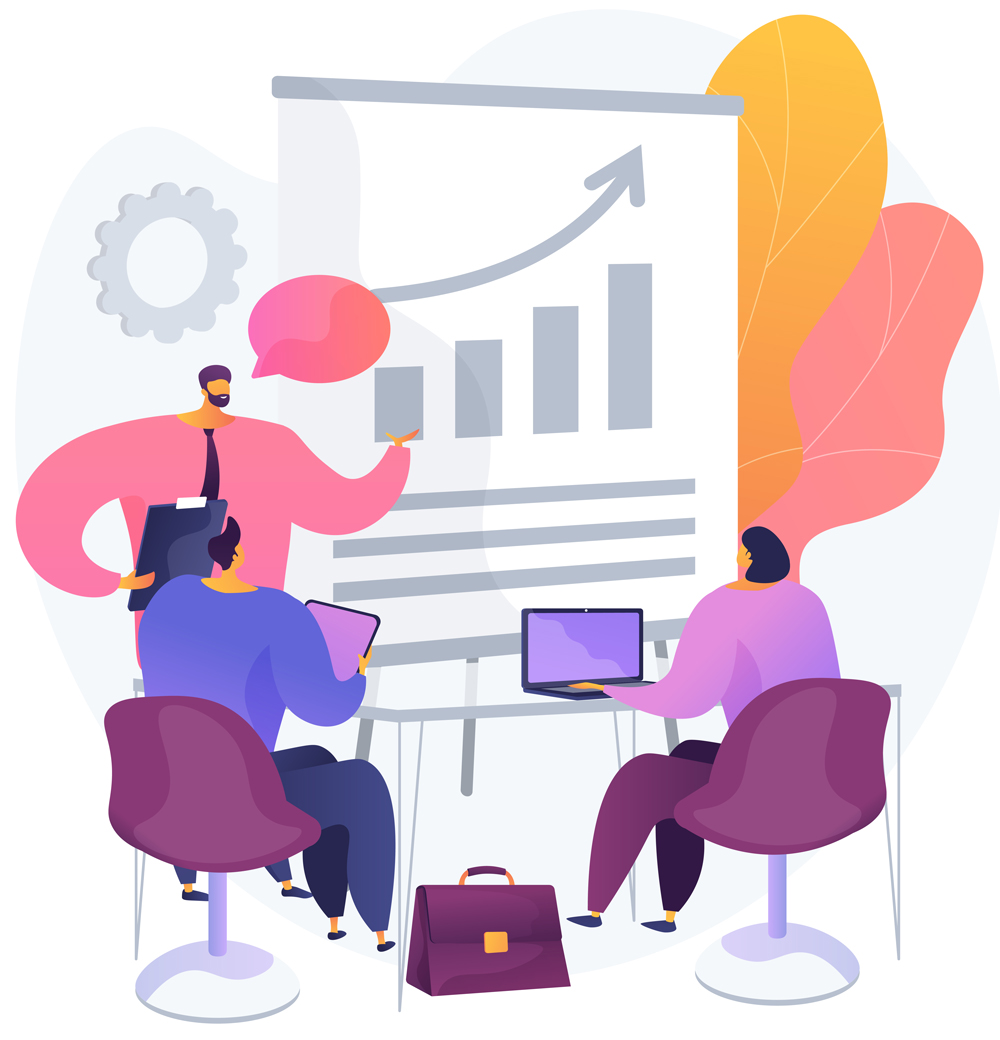The digital marketing community has been buzzing with one massive question: Will artificial intelligence one day eliminate the work of SEO professionals, replacing human expertise? For others, it causes cheerfulness. AI holds out the prospect of lightning speed analytics, prediction algorithms, and automation that would save marketers hundreds of work hours. For others, it triggers fear. If machines can handle optimisation, does that mean SEO professionals will become irrelevant?
The truth, however, is much more complex. AI isn’t here to replace SEO; it’s here to revolutionise it. It’s man with machine, not man against machine. In the future, AI SEO services are changing the way search is carried out because they roboticise complex processes and provide information in a scale that would never have been achieved by humans operating individually. If you’d like to explore in detail how AI is reshaping digital marketing strategies, check out this insightful blog: How AI Is Transforming Marketing Industry in 2025.
We will explore some of the most prevalent myths about AI and SEO, and understand why AI is so important in the future of digital aesthetics and visibility.
3 SEO Myths About AI (And Why Human Strategy Still Wins)
Myth 1: AI Will Completely Replace SEO
To some extent, AI has revolutionised the search concept. Systems such as BERT and RankBrain have enabled Google algorithms to process language in a manner that mimics human understanding, thereby solving the machine learning challenge of providing results that feel human. However, does it mean that SEO specialists are obsolete? Not at all.
Search engines continue to rely on human behaviour, user intent, and the relevance of content. It is expected that AI will be able to process billions of pieces of data in mere seconds, but a cultural context, the trend within the industry, or brand stories cannot be assessed in the same way that a human strategist can.
Here’s where AI shines:
- Automating keyword research
- Competitor tracking
- Performance monitoring
- Technical audits
With the help of such tools, businesses can save time and resources. However, that does not render humans obsolete; it enables AI SEO professionals to consider creativity, branding, and strategy in the long term.
Consider AI as your assistant, not your boss. It handles the manual labour, allowing the SEO personnel to focus on the greater good.
Myth 2: AI Generated Content Rules the Rankings
One of the most common misconceptions is that AI generated content can dominate search rankings on its own. Yes, tools like ChatGPT and Jasper can produce articles in seconds, but Google’s recent updates make it clear: quality, expertise, and authenticity are what matter in ranking.
Google’s EEAT framework (Experience, Expertise, Authoritativeness, Trustworthiness) ensures that thin, AI spun content doesn’t flood the SERPs. A machine may mimic structure, but it cannot replace real world expertise, credibility, or unique insights.
For example, imagine a blog about healthcare advice. AI could draft general explanations, but only a medical professional can add trustworthy, actionable insights with lived expertise.
Innovative businesses utilise AI SEO services for drafting, structuring, and scaling, but they rely on AI SEO specialists to refine tone, add authority, and align content with user intent. Human judgment ensures credibility, compliance, and cultural fit.
Myth 3: SEO Skills Will Become Obsolete
Another myth is that SEO professionals will become irrelevant because AI handles analytics and reporting. While AI driven tools are excellent for:
- Predictive modeling
- Voice search optimisation
- Data clustering
SEO is not just about technical work. It’s about understanding people, creating meaningful experiences, and telling stories that connect emotionally.
Any good SEO plan is not just a traffic plan, but also a conversion plan, brand loyalty plan, and community building plan. Machines can only go so far in making decisions, but they cannot convey the emotional attachment underlying the content.
In fact, the rise of AI SEO services makes human skills even more valuable. The professionals who learn to leverage AI alongside creativity will be in the highest demand. Hybrid skills, where AI SEO specialists interpret AI insights into practical strategies, are the future.
Common AI SEO Mistakes That Can Hurt Performance

While AI brings speed and efficiency to SEO, it’s far from a flawless solution. Many businesses stumble by relying too heavily on automation without balancing it with strategy and oversight. The following are some of the pitfalls to put a finger on:
- Publishing content without identity or authority – AI generated articles that lack author profiles, expert input, or credibility signals often struggle to rank, as search engines value transparency and trust.
- Overlooking Google’s E-E-A-T principles – Prioritising shortcuts or keyword stuffing over Experience, Expertise, Authoritativeness, and Trustworthiness can backfire, causing long term visibility issues.
- Blindly following AI recommendations – Implementing every automated suggestion without a technical SEO audit can lead to site errors, broken structures, or misaligned strategies.
- Forgetting the brand voice – In the race for optimised keywords, businesses sometimes lose sight of their unique identity, which weakens brand recognition and user trust.
Ultimately, AI SEO services are only as effective as the professionals guiding them. The most innovative approach is using AI as an assistant, powerful, yes, but always under human supervision.
Reality Check: AI Enhances SEO, It Doesn’t Replace It
Data Driven Insights
AI can process massive amounts of data at speeds humans can’t imagine. Tools powered by AI SEO services can:
- Detect search trends before they peak
- Predict seasonal behaviour shifts.
- Analyse SERP volatility
This allows the businesses to be ahead of the curve because they perform before their competitors. An example may be predictive analytics, which can show a surge in searches for environmentally impact loving products months before the market becomes too busy ,giving those who adopt it at the beginning a significant edge.
Smarter Personalisation
Search is no longer “one size fits all.” AI tailors results based on user intent, history, and location. Businesses using AI driven personalisation can create hyper targeted campaigns, improving engagement and boosting ROI.
Imagine two users searching for “best running shoes.” AI will serve results differently: one might see budget friendly options, while the other receives marathon level gear suggestions. AI SEO specialists use this knowledge to craft content that resonates with segmented audiences.
Automation Meets Strategy
AI handles repetitive tasks like site audits, backlink analysis, and technical fixes. But deciding which opportunities matter most and how to position a brand requires human insight.
Here, AI SEO specialists bridge the gap, turning raw AI outputs into actionable strategies that align with brand goals.
Where AI Falls Short in SEO
- Creativity: Machines can’t replicate authentic storytelling.
- Cultural Sensitivity: Local slang, humour, and emotional resonance still require human input.
- Relationship Building: Backlinks, PR, and influencer partnerships are people driven.
- Ethics: Without oversight, AI can produce misleading or biased content.
Looking Ahead: The Hybrid Future
The future belongs to collaboration. Businesses that adopt AI SEO services and invest in skilled professionals will thrive. It’s not man vs. machine, it’s man with machine.
As algorithms become more sophisticated, search engines will reward content that strikes a balance between technical precision and human authenticity. For this reason, AI SEO specialists remain indispensable. They ensure balance between automation and creativity, guiding brands through constant digital shifts.
Practical Tips for Businesses
- Adopt AI Gradually: Start with tools that automate reporting or keyword clustering.
- Keep Human Oversight: Always review AI output for accuracy and brand tone.
- Focus on User Intent: Align every page with what real users search for.
- Prioritise Quality over Quantity: One well researched article beats dozens of AI spun pages.
- Invest in Training: Upskill teams to use AI effectively alongside traditional SEO.
Conclusion
The question isn’t whether AI will replace SEO, but how it will redefine it. Integrating AI SEO services with the expertise of qualified AI SEO experts will help businesses review their practices, develop authority, and remain visible in competitive search environments. At Rank The Page, we firmly believe that AI must be a means, not a substitute, and its intelligent users will be the leaders of the digital age. To learn more about integrating AI SEO services with your marketing strategy, contact us today.
FAQs
Ans. No. Artificial intelligence has the potential to automate tasks; however, human intervention is still required for creativity, strategy, and moral considerations.
Ans. Prices fluctuate, but they usually save money in the long term by cutting or eliminating manual labour and increasing efficiency.
Ans. They process AI data, utilise human creativity, and ensure that various search rules are followed.
Ans. Yes, but only after being reviewed, refined, and supplemented by professionals in accordance with Google’s EEAT parameters.



